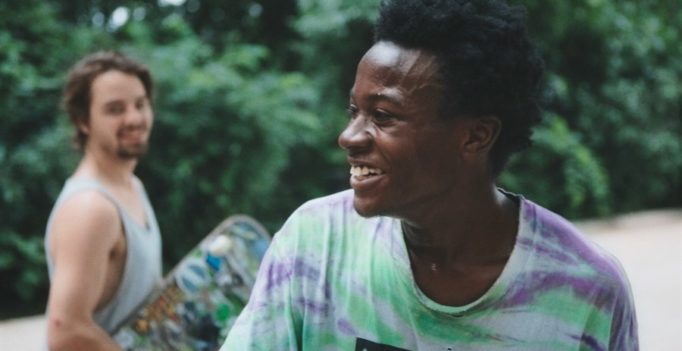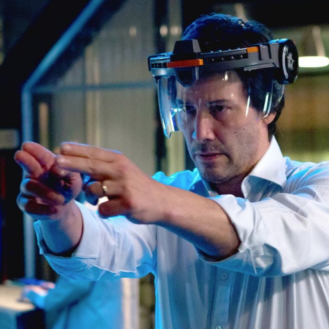By: Trevor Chartrand
First-time director Bing Liu shows some real promise with his highly personal and reflective documentary, Minding the Gap. Viewers watching may find themselves concerned early on, especially since the film appears to focus on a group of skater burn-outs and their quest to get drunk. However, the doc challenges those expectations and quickly proves to be a profound examination of their troubled lives.
It’s easy to dismiss the subjects early in the film as immature drop-outs – and I suspect the editors have set it up this way intentionally. As the movie explores these characters on a deeper level, you’ll quickly regret any initial judgment of these people because of the harsh realities they’ve all had to face. Surprisingly, the cause of all their suffering can be attributed to a few common denominators.
The three subjects of the film take the crappy hands they’ve been dealt and pursue starkly different paths. Director Liu uses the film to examine his hometown’s reputation for domestic violence, with his own experiences as a child as his entry point. He lovingly, cautiously, confronts his mother about the abuse they both suffered at the hands of his father.
The film also features two of Bing’s close friends, Zack and Keire – both are talented skaters in their early 20s who grew up with dysfunctional and violent fathers. As a new father himself, Zack struggles with the realization that he is becoming the same impatient, violent man his dad was. Zack is a tragic figure, turning to coping mechanisms like drugs, alcohol, and running away instead of facing his problems.
Keire’s relationship with his father is even more complicated. As a black youth in small-town America, Keire struggles with racial identity. His father, abusive as he was, had some profound teachings for his son regarding race and individuality. Despite how he was treated, Keire is faces a lot of regrets about how his relationship with his dad ended – he finally feels his father’s love, but only after the man has passed. Unlike Zack, Keire uses his regrets as a driving force to set himself on a better path for the future.
It’s clear from archival footage in the film that Liu has been filming his friends and their skateboarding exploits for years – so the “chicken or the egg” question here is whether he became interested in filmmaking because of his passion for skateboarding, or whether he loved the camera before he loved the board. Either way, the skating sequences are thrilling, and shot exceptionally well. Liu has obviously had years of practice keeping a skater in frame, making for some really compelling sequences.
Minding the Gap is edited so that perceptions are constantly changing and characters are developed in an organic and ever-changing way. Zack especially flip-flops from victim to villain constantly. In early arguments with Nina, the mother of his child, we’re on his side and his points all seem valid – until we learn some dark truths Zack hides from the camera. He’s a troubled person, but the film remains unbiased and respectful – his suffering and concerns are visceral and real, but his actions aren’t always forgivable or easy to digest. There’s a lot of humanity in each of the three narratives, and this film owes a lot of this to some powerful structuring in the editing suite.
Minding the Gap is an exceptional examination of human nature, featuring rounded characters at their best and at their worst. It’s a peek behind the curtain of damaged lives as they strive to find reparation. The film’s optimism finds silver linings and hope for anyone who is willing to apply themselves. The characters are completely transparent and open – Keire even proclaims that making the movie is “like free therapy” for him, just as it could be for anyone who can relate to him.
A compassionate look at some disturbed lives, Minding the Gap will leave viewers reexamining themselves with a sharper, profound, new perspective.
**********
Do You Tweet? Follow These Tweeple:
Trevor Chartrand: @OhHaiTrebor





Be the first to comment